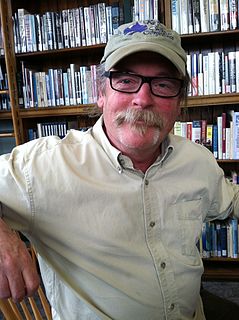A Quote by Tacitus
So true is it that all transactions of preeminent importance are wrapt in doubt and obscurity; while some hold for certain facts the most precarious hearsays, others turn facts into falsehood; and both are exaggerated by posterity.
Related Quotes
Facts matter not at all. Perception is everything. It's certainty. People love the president because he's certain of his choices as a leader, even if the facts that back him up don't seem to exist. It's the fact that he's certain that is very appealing to a certain section of the country. I really feel a dichotomy in the American populace. What is important? What you want to be true, or what is true?
Facts are neutral until human beings add their own meaning to those facts. People make their decisions based on what the facts mean to them, not on the facts themselves. The meaning they add to facts depends on their current story … facts are not terribly useful to influencing others. People don’t need new facts—they need a new story.
[The scientist] believes passionately in facts, in measured facts. He believes there are no bad facts, that all facts are good facts, though they may be facts about bad things, and his intellectual satisfaction can come only from the acquisition of accurately known facts, from their organization into a body of knowledge, in which the inter-relationship of the measured facts is the dominant consideration.
The past is of no importance. The present is of no importance. It is with the future that we have to deal. For the past is what man should not have been. The present is what man ought not to be. The future is what artists are.
The facts: nothing matters but the facts: worship of the facts leads to everything, to happiness first of all and then to wealth.
Many, and I think the determining, constitutive facts remain outside the reach of the operational concept. And by virtue of this limitation this methodological injunction against transitive concepts which might show the facts in their true light and call them by their true name the descriptive analysis of the facts blocks the apprehension of facts and becomes an element of the ideology that sustains the facts. Proclaiming the existing social reality as its own norm, this sociology fortifies in the individuals the "faithless faith" in the reality whose victims they are.
I think it's my job or the artist's job, to try and find some solution or some reason to accept things. But given the grimmest reality, I feel the grimmest facts are the real facts, the true facts: that you're born, you die, you suffer, it's to no purpose, and you're gone forever, ever, ever, and that's it.
All good intellects have repeated, since Bacon's time, that there can be no real knowledge but that which is based on observed facts. This is incontestable, in our present advanced stage; but, if we look back to the primitive stage of human knowledge, we shall see that it must have been otherwise then. If it is true that every theory must be based upon observed facts; it is equally true that facts can not be observed without the guidance of some theory. Without such guidance, our facts would be desultory and fruitless; we could not retain them: for the most part we could not even perceive them.
Our alleged facts might be true in all kinds of ways without contradicting any truth already known. I will dwell now on only one possible line of explanation, - not that I see any way of elucidating all the new phenomena I regard as genuine, but because it seems probable I may shed a light on some of those phenomena. All the phenomena of the universe are presumably in some way continuous; and certain facts, plucked as it were from the very heart of nature, are likely to be of use in our gradual discovery of facts which lie deeper still.
One of the dangers today is that when we don't like what the facts tell us, we just attack the facts, and we undermine the credibility of institutions. That is true not just for reporting; it's true of when people are attacking the congressional budget office, or when they're attacking certain science - that's where we can get into a dangerous realm.
Truths emerge from facts, but they dip forward into facts again and add to them; which facts again create or reveal new truth (the word is indifferent) and so on indefinitely. The 'facts' themselves meanwhile are not true. They simply are. Truth is the function of the beliefs that start and terminate among them.







































